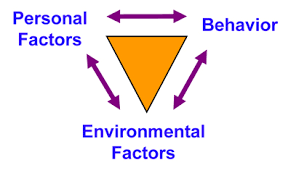"2024-01-29"
# Classroom Assessment
#EDUC145 #education #teaching #learning
# Assignment 1: Writing Competences and Objectives
# Task
- Choose a subject, grade level, and topic.
- List down at least two Knowledge, Attitudes and/or Skills. (2 pts)
- Based on your response in #2, write a competence. (2 pts - the competence must be worthy and essential)
- Write at least two LOTS objectives and at least two HOTS objectives related to #1. (4 pts)
- Identify the level of each objective based on Bloom’s Taxonomy. (4 pts)
# Writing
Subject: Introduction to Streetdance Grade Level: College freshmen + sophomores Topic: Fundamental Hip-hop Techniques
Knowledge: Hip-hop techniques (e.g. Bounce, Rock, Wave, Roll, Skate), Variations of techniques Attitudes: Patience, Embodiment/Bodily Awareness Skills: Grooving (knowing how to move to a rhythm/beat), Musicality (knowing how to listen + dance to music)
Competence: By the end of this class, students should be able to freestyle hip-hop dance comfortably (in a party or jam setting).
LOTS objectives:
- Understand: Explain how to do a hip-hop technique (e.g. bend the knees, bob your head back)
- Apply: Practice doing variations of one hip-hop technique (e.g. hitting different timings, trying textures)
HOTS objectives:
- Analyze: Compare and contrast different hip-hop techniques (i.e. what makes the Bounce different from the Rock?)
- Create: Choreograph 4 eights, utilizing at least 2 hip-hop techniques
# Educational Psychology
#EDUC132i #education #psychology #teaching #learning
# Social Cognitive Perspective of Learning
- Albert Bandura found basic behavioral principles to be correct and useful as far as they went, but also too limited to explain complex human thinking and learning.
- His early social learning theory included enactive learning (learning through reinforcement and punishment of your own behaviors) and added learning through modeling and observing others being reinforced or punished for particular behaviors.
- In his autobiography, Bandura (2007) describes the shortcomings of behaviorism and the need to put people in social context:
I found this behavioristic theorizing discordant with the obvious social reality that ==much of what we learn is through the power of social modeling.== I could not imagine a culture in which its language; mores; familial customs and practices; occupational competencies; and educational, religious, and political practices were gradually shaped in each new member by rewarding and punishing consequences of their trial-and-error performances. (p. 55)
- Over time, Bandura’s explanations of learning included more attention to cognitive factors such as expectations and beliefs in addition to the social influences of models (Bandura, 1986, 1997, 2001).
- His current perspective, social cognitive theory, retains an emphasis on ==the role of other people serving as models and teachers== (the ==social== part of social cognitive theory), but includes ==thinking, believing, expecting, anticipating, self-regulating, and making comparisons and judgments ==(the ==cognitive== part).
- Social cognitive theory is a dynamic system that explains human adaptation, learning, and motivation. The theory addresses ==how people develop social, emotional, cognitive, and behavioral capabilities; how people regulate their own lives; and what motivates them== (Bandura, 2007; Bandura & Locke, 2003).
# Cards/Reciprocal Determinism Theory
- Bandura’s social cognitive theory highlights that environmental factors, personal factors, and behaviors are seen as interacting in the process of learning.
- This idea is best represented by the reciprocal determinism model.
- Bandura expanded the ideas of the behaviorists by recognizing the agency of the person in changing or influencing his or her behaviors.

Ministry of Education - Mrs Chong (Singapore)
# Reflection: Social Cognitive Learning
# Prompt
Guide questions:
- How does an environment where ethical relativism, historical revisionism, and disinformation affect my thinking and behavior?
- How can discernment help me so that my behavior is truly a reflection of “person-for-others”?
Answer this in 5-8 sentences.
# Answer
- environment: post-truth era
- behavior: more wary, more scrtinization
- personal factors: belief in truth and justice
In this post-truth era, I am now more wary of the information surrounding me. I must always assume that what the content I see has a possibility of being exaggerated or biased. This is because authors tend to have an agenda, more often than not; people want you to pick sides, as seen with all the controversial issues circulating online (e.g. Israel’s genocide in Palestine, the U.S. elections, Duterte-Marcos squabbles). As a result, our media landscape is extremely polarizing. I always need to double-check what I see on my feeds to make sure I’m getting the full story, especially as someone who strongly believes in truth and justice.
Thus, discernment is a responsibility I must uphold whenever I share a post. If I want to be a “person-for-others”, I need to ensure that I’m not spreading misinformation/disinformation. I do this by conducting my own research before reposting content online. It’s the least I could do, given my privilege (i.e. Atenean education); I understand that not everyone has the capacity to do this, especially those who are living on survival mode.